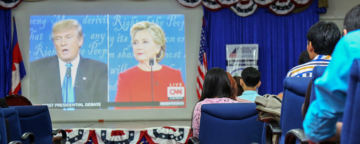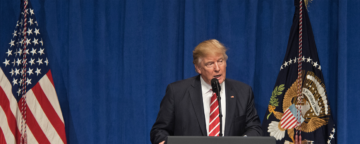An experimental study of the effect of humor and video in fact-checking finds that both funny and non-humorous videos were more interesting and understandable than a comparable textual fact-checking story.


An experimental study of the effect of humor and video in fact-checking finds that both funny and non-humorous videos were more interesting and understandable than a comparable textual fact-checking story.

Oxford has published The Handbook of the Science of Science Communication, the first in a series overseen by the Annenberg Public Policy Center's Science of Science Communication program.

In a new report, a group of leading scientists, academics and editors of scientific journals call for greater transparency and uniformity in the way author contributions are presented in science studies.

A study found that the Pope's encyclical on climate did not directly influence people’s beliefs about climate change but did so indirectly by raising the Pope's credibility on the issue.

A new study finds that pictorial warnings on cigarette packs can help to curb smoking levels at least 30 days after smokers had daily exposure to them.

What did viewers of the 2016 general election presidential debates learn about the candidates? A new APPC study analyzes debate learning and the effect of post-debate TV coverage.

The Cronkite Awards honoring excellence in TV political journalism were presented at the National Press Club, including the Brooks Jackson Prize for Fact-Checking Political Messages, named for the founding director of FactCheck.org.

FactCheck.org has examined President Trump's first 100 days and, in separate stories, recaps Trump's misleading and false statements, and delivers a scorecard on the 28 promises in his "100-day action plan to Make America Great Again."

For the fourth consecutive year, FactCheck.org has been awarded both the Webby for Political Blog/Website, as chosen by a panel of judges, and the People's Voice award in the same category, thanks to its readers.

Annenberg Public Policy Center director Kathleen Hall Jamieson presented a talk at TEDxMidAtlantic on the changing nature of political discourse, "The decline of American politics, and how to fix it."